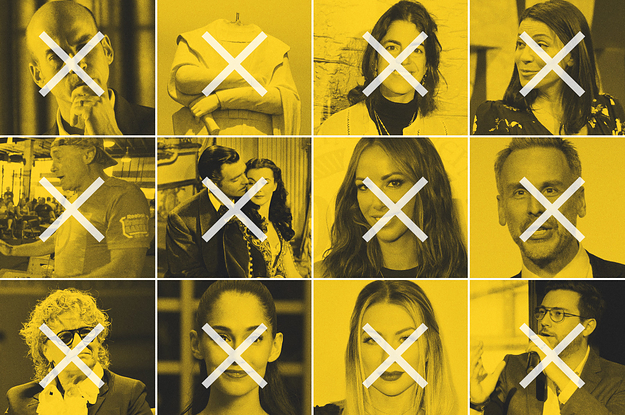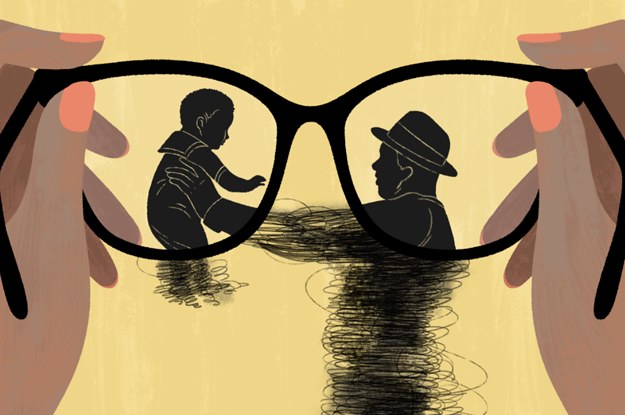Category: Worldwide
Category Added in a WPeMatico Campaign

While reading the reviews for Josephine Decker’s new film Shirley (out now on Hulu), there’s one phrase I saw multiple times: “career-best performance,” as in, “Featuring a mind-blowing, career-best performance from Elisabeth Moss, Shirley is a tour de force of imagination,” and, “Elisabeth Moss is having one hell of a year, topping her recent career-best performance in The Invisible Man with a transformative turn as Jackson.” These reviews are both on point and off the mark: Moss does give a career-best performance in Shirley, but she also gives career-best performances in Mad Men, Us, Her Smell, Top of the Lake, and The Invisible Man. Every Elisabeth Moss performance is a career-best performance. (Except The Kitchen. The Kitchen is bad.)
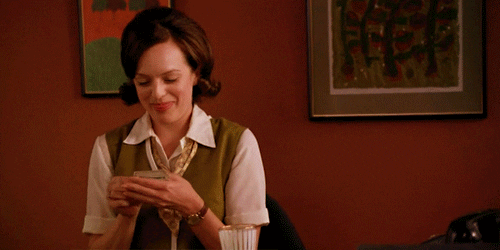
When was the first time you noticed Elisabeth Moss? For many, it was Mad Men, where she played secretary-turned-copy chief Peggy Olson, or maybe as President Bartlet’s daughter, Zoey, on The West Wing. But the actress has been part of your pop culture life longer than you realize. In the years prior to moving into the White House, Moss provided voice-work for Batman: The Animated Series and Animaniacs; escaped to Witch Mountain in, well, Escape to Witch Mountain; appeared in the small-screen remake of Gypsy; and made Hulk Hogan rescue her cat from a tree in Suburban Commando, her feature-film debut. She was an accomplished child star when she caught the attention of Aaron Sorkin. During her second audition for The West Wing, “I left and I thought, ‘Well, I guess that went OK.’ Then I got the part and later figured out when I met him that I had read with Aaron Sorkin,” she told the Wall Street Journal.
Moss was only 23 years old when she auditioned to play Peggy (“I don’t look anything like Peggy [in the tape]. I’m 23, blond, tan. I look like I just walked off of the beach”), a role that would take her from “Elisabeth Moss” to “Emmy winner Elisabeth Moss.” On a show full of great actors playing complex characters, including Jon Hamm as Don, January Jones as Betty, John Slattery as Roger, Christina Hendricks as Joan, and Marten Holden Weiner as Glen, obviously, it’s Moss who stands above the rest, with the possible exception of Vincent Kartheiser as Pete. (Don’t make me choose between “PIZZA HOUSE” and “NOT GREAT, BOB.”) She’s at the center of the show’s best episode, and the star of its most indelible shot. But while Mad Men will likely always be the project that Moss is most associated with, there’s a debate to be had over whether Peggy is her “best” role. Can you say that about anyone else in the main Mad Men cast?
Think about it this way: when Jon Hamm passes away, the first line of his obituary will read something like, “Emmy-winning Mad Men star Jon Hamm passed away at the age of 175 years old today” (it was nice of Paul Rudd to share his secret to not aging with his Midwest buddy). Same with Slattery and Hendricks — that’s not a knock on them as actors (he, like Hamm, is excellent on 30 Rock); it’s more, Mad Men was that good. It’s not every day you’re in all-time great show. But for Moss, her obituary role is a toss-up.
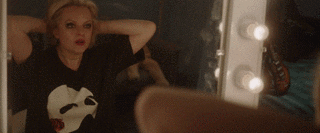
My favorite Elisabeth Moss performance is in Alex Ross Perry’s Her Smell, where she plays Becky Something, a narcissistic, self-destructive, burnt-out rock star… who you still believe deserves redemption, for her daughter and for herself. It’s a difficult movie to watch, and Becky is a challenging character to spend two hours with, but Moss portrays her with a captivating rawness, making sure to never overplay her warts-and-all personality. I think about the piano scene once a month. It’s a gutsy, ugly (in a beautiful sort of way) performance that the Oscars ignored, despite Perry passionately campaigning on his star’s behalf. “[Moss] rigorously calibrated this whirlwind of maniacal insanity, sticking to the script while working off impulse and instinct. It wouldn’t be honest of me to pass up an opportunity to give this performance one final cheer from the sidelines and hope that it is seen as the once-in-a-great-while alchemical blend of writing, directing, and, most crucially, acting that it is,” he wrote to no avail, sadly.
Moss has actually never been nominated for an Oscar or Golden Globe, at least not for a movie role. She’s won two Globes for her TV work: Best Actress – Miniseries or Television Film for Top of the Lake (“Why Top of the Lake is still Elisabeth Moss’s greatest role”) and Best Actress – Television Series Drama for Hulu’s The Handmaid’s Tale (“It’s clear that the phenomenal debut season owes its excellence to the career-best performance of Elisabeth Moss”), which has dipped in quality over the seasons, but it’s still worth watching for Moss, Yvonne Strahovski, and Alexis Bledel. (Never forget that Rory Gilmore was on Mad Men, where she met Peggy’s baby daddy Pete, played by Vincent Kartheiser, who she’s now married to. The only good celebrity couple? Discuss.)
Anyway, Moss is phenomenal in The Square (you’ll never look at a condom the same way), indies The One I Love and Listen Up Philip, and Us (the way she says “vodka o’clock” is chef’s kiss emoji), but she’s really shined in 2020. If she’s not in every scene The Invisible Man, she commands the Blumhouse horror flick like she is. It’s tough to play against literally nothing, but Moss is gloriously “committed” as Cecilia, who correctly believes that she’s being stalked by her abusive partner who everyone thinks killed himself. It’s an emotionally-draining performance, with all the internal distress that comes with not being believed for what you know is true, and physically demanding, too, in scenes where she’s being attacked by someone she can’t see. You also can’t see the monster in Shirley, Moss’ other foray into horror, but the demons are there.
You know the “[person’s name] that’s it, that’s the tweet” meme? Elisabeth Moss in Shirley, that’s it, that’s the tweet. She plays “The Lottery” and The Haunting of Hill House author Shirley Jackson with a deliciously uneasy edge, whether she’s being provoked by her frail-ego husband who’s both her #1 fan and biggest tormentor (an equally great Michael Stuhlbarg), incapable of leaving the bed due to undiagnosed mental health issues, or feeding possibly deadly mushrooms to her younger house-mate Rose (Odessa Young); their relationship falls somewhere between outright contempt and bordering-on-romantic affection, although sometimes it’s both at the same time. Shirley is a refreshing take on The Tortured Genius trope, and aided by Decker’s experimental flourishes and Moss employing an impressive array of facial tics, you could probably watch it on silent and still understand Jackson’s emotional turmoil. You shouldn’t do this, though, because then you’d miss Moss saying, “I’m a witch.” I half-believe her.
With the shut-down in production due to the global COVID-19 pandemic, Moss only has two upcoming projects on her filmography: Wes Anderson’s The French Dispatch and Next Goal Wins, Taika Waititi’s soccer movie. It’s unclear who she plays in both films, but whoever the characters are, I’m sure she’ll give her next career-best performance.

Over and over during the press tour for The Big Sick in 2017, I remember screenwriters Kumail Nanjiani and Emily V. Gordon talking about how their producer Judd Apatow had kept hectoring them to make their script more real, more personal, to go with honesty over punchlines whenever in doubt. It was good advice then, and I wish director Apatow had taken producer Apatow’s advice.
Instead, his latest, The King of Staten Island, seems intent on turning Pete Davidson’s actually-interesting personal journey into yet another one of Apatow’s overlong Man-Child Belatedly Learns To Clean His Room sagas. It’s a movie that expends most of its energy trying to turn a unicorn into a horse. Because hey, people buy horses, right? We know how to sell a horse.
Pete Davidson is the rare, possibly historically unique comedian who is actually more famous for being a Famous Person than he is for being a comedian. Even before he started dating pop stars he had a compelling backstory: he was a teen comedian whose dad died on 9/11 (not to be confused with Steve Rannazzizi, the comedian who lied about 9/11). He got cast in SNL when he was just 20, one of the youngest cast members ever and the first to be born in the ’90s. As a person, Davidson also has the rare gift of being able to understand and joke about his own public persona (“I look like I make vape juice in a bathtub,” as he put it on SNL). I interviewed him a few years back, and to this day he stands out as one of my more candid and charming interviewees.
Apatow seems to understand that Davidson himself is part of the draw, so he incorporates much of Davidson’s real story, like his real hometown (Staten Island), the fact that his father was a fireman who died when he was a kid, and his struggles with mental health. Only now Davidson is “Scott Carlin,” whose father died not in a terrorist attack but in a hotel fire, and instead of a comedian he’s a directionless stoner who dabbles in tattooing and lives with his mom (played by Marisa Tomei). Notice how every change here seems to make the story less interesting?
Trouble is, we’ve seen “immature guy learns to grows up” before. The King Of Staten Island never fully reckons with its own central hook — Scott’s mental health issues, which are kind of just a cutesy punchline — and it simultaneously attempts to capitalize on Davidson’s celebrity status while for story purposes pretending it doesn’t exist. It’s a little reminiscent of the later seasons of The Jersey Shore, after The Situation and Snooki and the gang had become wildly famous, when the slavering hordes and exorbitant nightclub appearance fees that followed them wherever they went had become the most interesting part of the story, yet the producers had to painstakingly ignore it all in order to keep selling us the antiquated tale of regular young people hooking up and acting stupid. Sometimes selling what you know keeps you from realizing what you have.
Likewise, we now get Pete Davidson as a slacker whose overachieving sister — played by Apatow’s daughter, Maude, who’s a good enough actress for me not to mind the nepotism — both outshines and resents him, whose girlfriend (Bel Powley) just wants to be acknowledged, whose loser friends get him into trouble, etc. — all the totems of stunted adolescence, as it’s popularly conceived. Apatow’s movies are always notoriously too long, but this time it isn’t self-indulgence that’s keeping The King Of Staten Island over two hours (137 minutes, to be exact) it’s more a failure to choose between four or five different stock storylines.
“Scott” at one point attempts to tattoo a kid in a park. The kid’s irate father, a fireman played by Bill Burr, shows up at the door the next day and ends up dating Scott’s mom. Burr is shockingly great in the role and when he winds up becoming friends with Davidson’s character, the two have genuine chemistry. Bro-ing down at the firehouse, they share the film’s first non-contrived-seeming camaraderie, which might have made up for the slog of the film’s first two acts if they hadn’t been so damned long. Did we really need to wait 90+ minutes for them to get to the firehouse? Did Scott really have to try to sabotage his mom’s relationship first and have blowout fights over who she was dating? Is this story really to hinge on the assumption that a 24-year-old man would interfere in his mom’s love life? Woof. Also, gross.
The one bright spot in culture is that we now have a template for how this could’ve been handled better. Dave on FX stars Dave Burd/Lil Dicky as himself, in a show about an unexpectedly viral rapper trying to navigate sudden fame. It’s interesting precisely because it seems to understand what The King of Staten Island does not: that actual success and its byproducts are more compelling than fake failure.
‘The King of Staten Island’ streams this weekend via VOD. Vince Mancini is on Twitter. You can access his archive of reviews here.
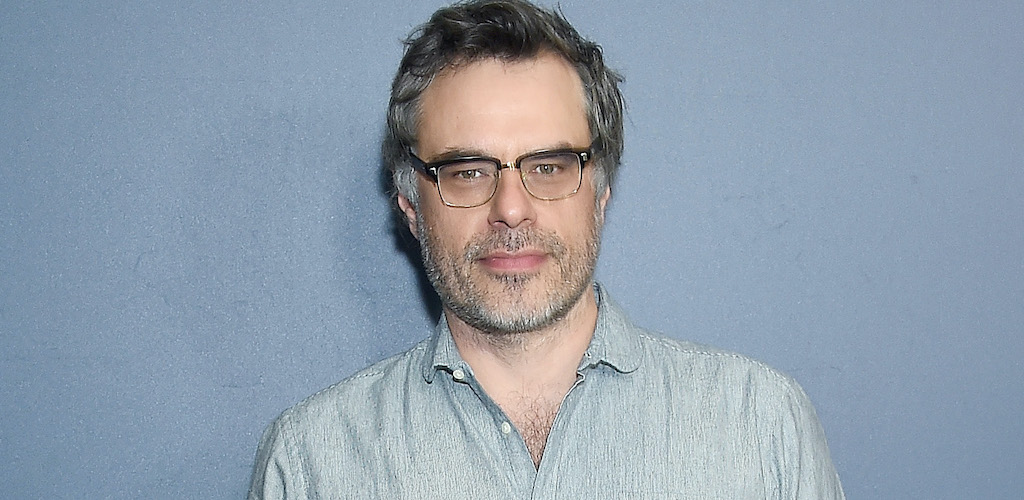
Jemaine Clement has had a rich and varied career since debuting with Flight of the Conchords, from voice appearances in Moana and on Rick and Morty to appearing in Steven Spielberg’s The BFG to getting a plum role in the Avatar sequels. But his most cherished non-Conchords work may be the What We Do in the Shadows-verse. Clement co-directed the mockumentary movie with Taika Waititi, and then went on to create the FX TV version, which focuses on a squadron of vampires in Staten Island. It’s had two great seasons thus far, and while it’ll be back for a third, Clement will be a bit less involved.
In a new interview with Entertainment Weekly (in a bit picked up by ComicBook.com), Clement — who’s twice swung by the show as long-haired stud Vladislav the Poker, his character from the movie — was asked what on earth he has left after the wild Season 2 conclusion. Here was his answer:
The writers will have to figure that one out because I won’t be in the writers’ room next season. I’m leaving them with this big problem to work out. I think it’s a good idea to end on a big cliffhanger, we did the same thing last season. Now they can figure out how to get out of this big mess.
So that’s pretty funny. It’s almost like a game of Exquisite Corpse, kind of, with Clement helping steer the writers’ room into a wall and see if they can plot their escape. It also means What We Do in the Shadows will remain a lively and surprising program that doesn’t rest on its laurels or give fans the same-old.
Elsewhere, Clement reveals one of his Vladislav appearances wasn’t supposed to happen. “I wasn’t even going to do this until the day before, because we had trouble getting anyone in time,” he revealed. “We were hoping we’d get someone who has played a vampire before, like in ‘The Trial’ last season with the vampire council, but we didn’t have enough time. So I happened to be in Toronto, where we shoot the show, so I put my wig on again, but it wasn’t planned.”
(Via EW and ComicBook.com)
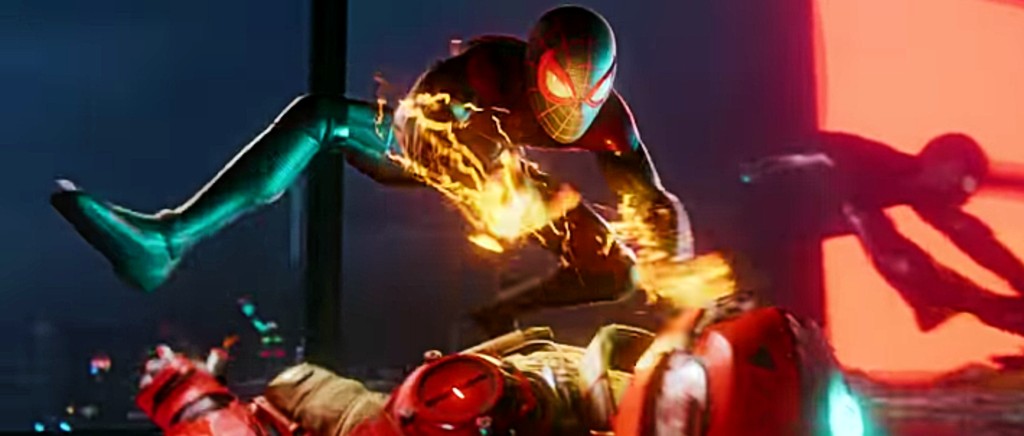
We finally have two consoles to be excited about for the next generation that arrives later this year. While Microsoft officially showed the Xbox: Series X as recently as last December, and had a showcase event in early May, Sony had remained oddly quiet. All details of the PlayStation 5 were released via statements, leaks, and articles in Wired. The most information anyone had about the console came from a very dry event for the Game Developers Conference that explained how the PS5 was going to function on a hardware level.
Finally, on June 11, Sony gave video game fans what they have been asking for in the form of a gameplay trailer event that showed some of the games that will be available in the near future on the PlayStation 5. In typical Sony fashion, the games ranged from exciting and cinematic to artistic and playful. It was a wide range of games and there was reason to be excited about all of them, but with any event like this, there are going to be those games that stick out from the crowd. Here are some of the trailers that left all of us anticipating Holiday 2020 and early 2021.
The Heavy Hitters
These games are console sellers. You buy the console because you want to play these games the most.
Spiderman Miles Morales
Marvel’s Spider-Man was one of the best games on the PS4 when it launched in 2018 and it didn’t take Sony and Insomniac long to get working on a sequel. This time they’re going with fellow Spider-Man Miles Morales. The star of Spider-Man: Into The Spiderverse, Morales will now be starring in his own game. The trailer begins with Peter Parker from the previous games telling Morales what it is that makes him a hero. Donning his black and red spidey suit we see him in a winter setting swinging through the city doing his job as Spider-Man.
I’m really excited to see what direction the franchise goes with Morales as the main protagonist of the game. To explain why this would be exciting would get into spoiler territory for the end of the last game, but let’s just say that Spider-Man fans everywhere will be picking up a PS5 to play this.
Horizon Forbidden West
Horizon: Zero Dawn was an incredible new IP on the PlayStation 4 that was unfortunately overshadowed by other exciting games at the time. Despite this it carved out a very strong and vocal fanbase that can spend hours explaining to you what makes Horizon such an incredible game. Taking that IP and giving it a sequel was a no brainer and there is heavy anticipation about what they are going to do with the franchise now that they have experience with it under their belts.
One thing we know for certain is that the world is going to be beautiful. The last game looked great, but if the trailer is anything to go by, then the follow up in Forbidden West is going to blow it out of the water. There is color everywhere and what appears to be a vibrant and growing world. While the trailer should obviously be taken with a grain of salt, because it’s a trailer, you cannot help but be excited when watching it.
Resident Evil Village
Resident Evil Village might as well be called Resident Evil 8, because that’s what it is. The Resident Evil series underwent a mini reboot with seven and went back to their horror routes in creating a scary, but still very Resident Evil, kind of game. Village is going to continue the format RE7 and stick with the first person view focused on horror.
You might be wondering why it’s so surprising to see a horror franchise actually have horror elements in the trailer and that’s because Resident Evil is also known for being extremely campy. For example, Chris Redfield almost gets crushed by a boulder in Resident Evil 5 and starts punching it to escape. Speaking of Chris, he shows up at the very end of the Village trailer leaving a lot of us long time Resident Evil fans wondering what role the former member of STARS is going to play in all this.
The Welcome Returns
These games might not be console sellers, but it’s great to see them make an appearance on the console.
Hitman III
It’s hard to say too much about Hitman III with the trailer itself being so vague, but it’s exciting to see that they’re making another Hitman game. There was concern that the franchise didn’t have much life left in it five years ago and now we have them as one of the major parts of a console event. The video game industry changes fast!
Ratchet and Clank: Rift Apart
Ratchet and Clank: Rift Apart is a welcome sight for long time PlayStation fans. The franchise was a major part of the PlayStation 2 and PlayStation 3 eras but surprisingly did not have a major role in the lifespan of the PlayStation 4. The Ratchet and Clank series has always been a lot of silly games with a great variety of weapons to choose from as you mow down enemies and platform through the colorful worlds.
This iteration sees Ratchet and Clank traveling through dimensions and if the developers can deliver on their promise of being able to do so at will, this could be one of the most creative games in the franchise and on the PlayStation 5 itself.
Sackboy: A Big Adventure
If you never played Little Big Planet on the PlayStation 3 then you did yourself a disservice. They were some of the best platformers of that generation and the player creation aspect led to some really unique level design. However, as the game grew it moved farther away from its traditional platforming roots and leaned heavily on the player creation aspect. This of course eventually led to developer Media Molecule making an entire game around that in “Dreams.”
Sackboy A Big Adventure sees the protagonist of Little Big Planet, Sackboy, returning to his roots and starring in his own 3D platformer. The trailer is absolutely charming and features some really unique levels that will be fun to traverse. As a fan of platformers, this is going to be in my cart on day one.
Demon’s Souls
We don’t need to spend too much time on this one. Demon’s Souls is a remake of the 2009 cult classic of the same name. Fans of this game and the Souls franchise have been waiting for a remake ever since the PS4 came out. They will be pleased.
Some Exciting Newcomers
Not everything needs to be a sequel or remake. Here are some exciting and fresh IP’s that stuck out.
Pragmata
Pragmata left me fascinated. Why is this world empty? Why is this person in a space suit? Why is there a little girl there? What in the world is happening to the world around them? Why are they now on the moon? I need to know the answer to these questions and it’s painful I will not know until 2022.
DEATHLOOP
DEATHLOOP is a game that, as a concept, is not entirely original but in execution is completely original. You play as a character who is put on an island where everyone is trying to kill him. When he dies he quite literally “respawns” and has to try and do it all over again. His eventual goal? Kill everyone on the island so he can escape. Simple enough right? Well, considering how often he’s been through this scenario based on the trailer, apparently not.
I’m a sucker for games like this. They’re extremely meta and the concept of a never ending loop that you have to solve is an interesting one. DEATHLOOP even throws in the extra caveat of an opposition character. A woman whose sole job in life is to kill the man stuck in the DEATHLOOP. They also potentially teased a multiplayer aspect at the end when they showed what appeared to be a player perspective taking control of her. Perhaps this is a 1v1 multiplayer game of some kind? I’m fascinated to know more.
The PS5 Itself
No one actually came into this event expecting to see the PS5 itself. Sony pushed hard that this was an event meant to show the games and nothing else. So to suddenly drop the look of the PlayStation 5 immediately caught everyone off guard.
Today was a major win for Sony and PlayStation. It’s now Microsoft’s turn to see if it has an answer with the Series X.
From Bon Appétit to CrossFit, top editors and executives are being called out for racism. But the Black Lives Matter movement is about much more than white-collar accountability.
